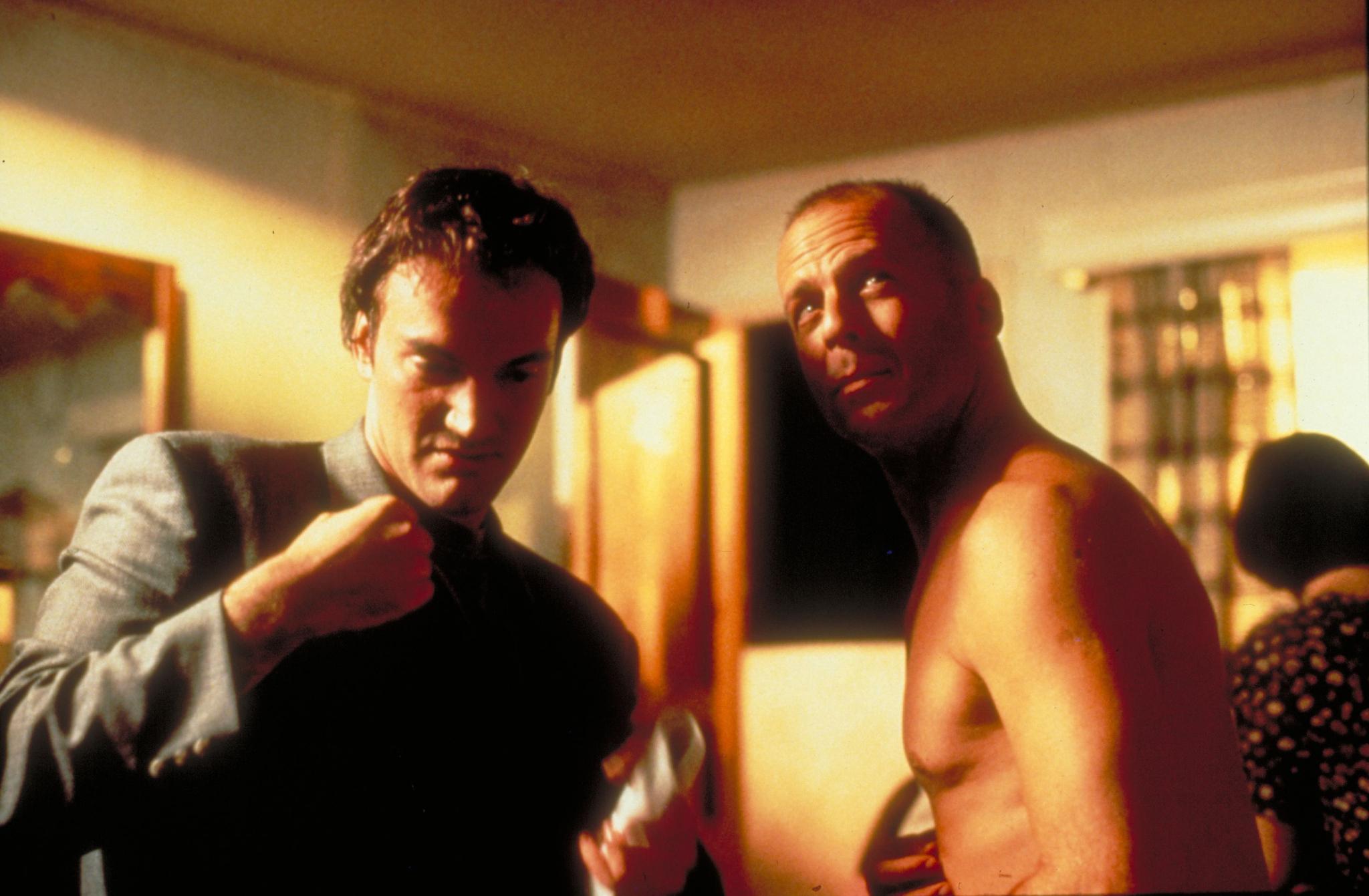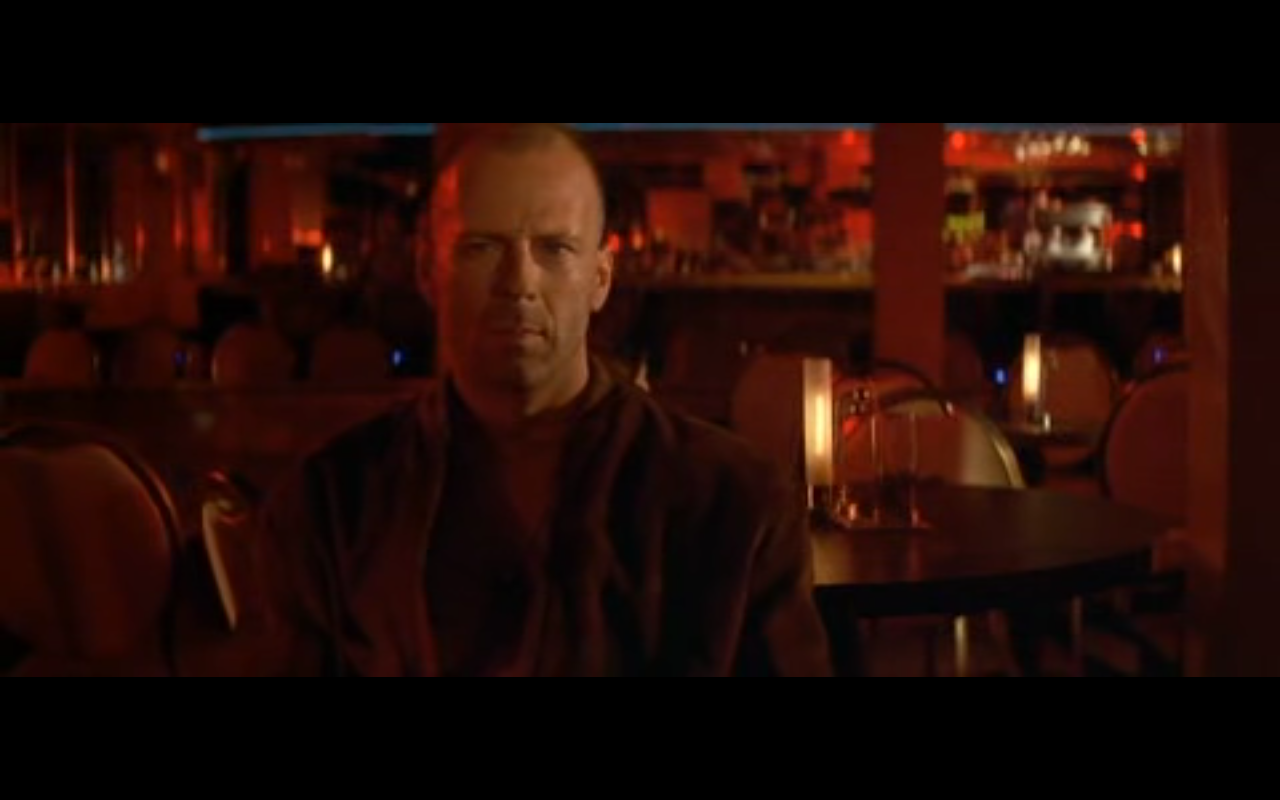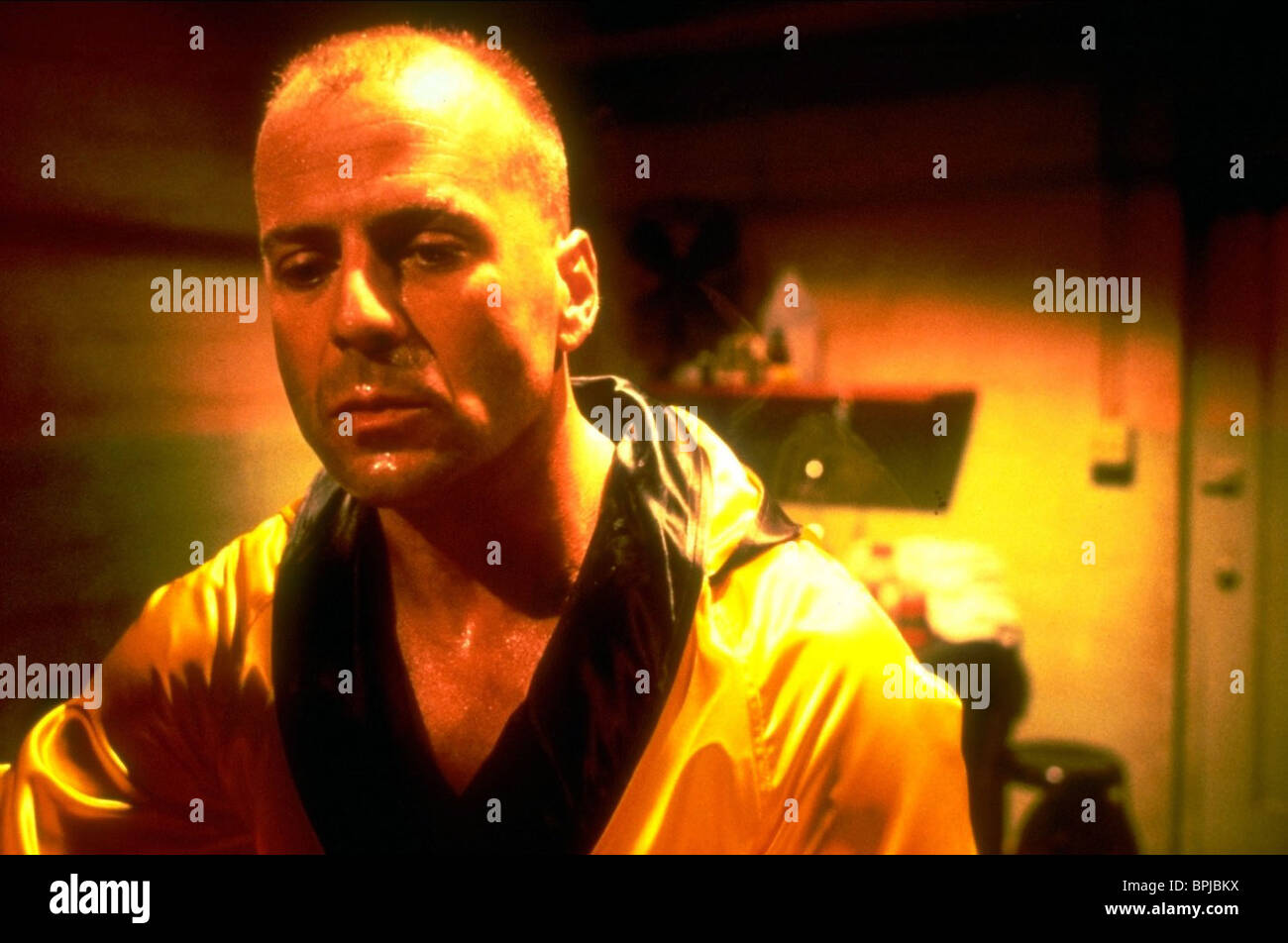How Much Did Bruce Willis Really Get For Pulp Fiction? Unpacking The Payday
Have you ever stopped to wonder, really wonder, about the financial side of Hollywood's biggest movies? It's almost like a hidden chapter in the story of those classic films we cherish. For many fans, the question of how much an actor earned for an iconic role is that intriguing piece of information. When we talk about a film as groundbreaking as Quentin Tarantino's "Pulp Fiction," and a star as big as Bruce Willis, the curiosity about his specific payday is, you know, rather strong.
This film, a true landmark in cinema, shifted how we thought about storytelling, and it also, quite frankly, reshaped the careers of its talented cast. Bruce Willis, a name already well-known for his action hero roles, took on a part that was, in some respects, different from what audiences typically expected from him. His presence in "Pulp Fiction" added a certain weight, a very specific kind of grit, to the already vibrant tapestry of the movie's interconnected tales.
So, the immediate thought might be that a star of his caliber, appearing in such a successful and critically praised picture, would command a truly immense upfront salary. However, the actual figures for his work on "Pulp Fiction" tell a rather surprising story, one that, honestly, goes against what many people might guess. It's a fascinating look at how Hollywood deals can work, especially for projects that become cultural phenomena.
Table of Contents
- Bruce Willis: A Glimpse into the Actor's Journey
- The Role of Butch Coolidge: More Than Just a Boxer
- Pulp Fiction's Impact: A Career Resurrector
- Unpacking Bruce Willis's Pulp Fiction Paycheck
- Behind the Scenes: Casting Choices and Creative Vision
- The Enduring Legacy of Butch Coolidge and Pulp Fiction
- Frequently Asked Questions About Bruce Willis and Pulp Fiction
Bruce Willis: A Glimpse into the Actor's Journey
Walter Bruce Willis, born on March 19, 1955, has, you know, really carved out a remarkable path in the entertainment world. Before his work on "Pulp Fiction," he was already a bona fide movie star, a truly recognized face in households everywhere. His breakthrough on television with the series "Moonlighting" showed off his charm and wit, preparing him, perhaps, for bigger things on the silver screen.
Then came the "Die Hard" series, which, frankly, cemented his status as an action icon. He became the kind of hero who could take a beating but always, always, find a way to win. These roles, like John McClane, showcased his unique blend of toughness and a kind of everyman appeal, which, honestly, resonated with so many viewers. He was, in a way, a very familiar presence in big-budget productions.
However, by the time "Pulp Fiction" came around in 1994, Bruce Willis was, as a matter of fact, experiencing a somewhat different phase in his career. He had been in a string of films that, in some respects, hadn't quite hit the mark with critics or at the box office. So, the opportunity to work with a visionary like Quentin Tarantino was, you know, a chance to perhaps shift gears and show a different side of his acting abilities.
Personal Details and Career Highlights
| Detail | Information |
|---|---|
| Full Name | Walter Bruce Willis |
| Birth Date | March 19, 1955 |
| Key Early Role (TV) | Moonlighting |
| Iconic Film Franchise | Die Hard |
| Notable Genre-Stretching Turn | Pulp Fiction, 12 Monkeys |
| Career Status (Current) | Retired American Actor |
The Role of Butch Coolidge: More Than Just a Boxer
In "Pulp Fiction," Bruce Willis takes on the character of Butch Coolidge. He is, in essence, the central protagonist of one of the film's intertwining narratives. Butch, as we learn, is a retired boxer, a man who, you know, finds himself in a very precarious situation. His story involves a rather dangerous deal with a mob boss, Marsellus Wallace.
The deal, as it turns out, involves Butch being bribed to lose his final match in the ring. This setup, naturally, creates a significant amount of tension and sets the stage for his part of the story. Butch's journey through the film is, basically, one of survival and unexpected turns, showcasing his determination and, well, his capacity for both violence and a strange kind of loyalty.
It's interesting to consider that Willis's character, Butch, was, in a way, one of the more conventional figures within the movie's often wild and unpredictable ensemble. While other characters like Vincent Vega or Jules Winnfield might have been more outwardly quirky or philosophical, Butch's arc felt, perhaps, a bit more grounded in a traditional crime narrative. This contrast, as a matter of fact, made his presence stand out in a different, perhaps more subtle, manner.
Pulp Fiction's Impact: A Career Resurrector
"Pulp Fiction" wasn't just a hit movie; it was, you know, a cultural phenomenon that had a truly profound effect on the careers of many involved. For John Travolta, his portrayal of Vincent Vega was, frankly, a massive career revival. He went from a period of less prominent roles to being, basically, back on top, reminding everyone of his incredible talent and screen presence.
The film also, in a way, launched Samuel L. Jackson and Uma Thurman into a much higher stratosphere of stardom. Their performances were, honestly, so captivating and memorable that they became household names almost overnight. It's really something to see how a single project can, you know, change the trajectory for so many talented people, giving them a much bigger platform.
And for Bruce Willis? While he was already famous, "Pulp Fiction" gave him, as the text puts it, "new muscle at the box office." This suggests that his involvement in the film, which was a critical and commercial darling, provided a fresh boost to his appeal and marketability. It showed audiences and industry insiders that he was, basically, willing to take on different kinds of roles and work with innovative filmmakers, which, frankly, expanded his range and influence.
Unpacking Bruce Willis's Pulp Fiction Paycheck
The question of "how much did Bruce Willis get for Pulp Fiction?" is, you know, one that often sparks quite a bit of discussion. Given the film's immense success and its enduring legacy, many people might assume a colossal upfront payment for a star of Willis's standing. However, the actual figures tell a rather surprising story, one that, honestly, challenges those initial assumptions.
The Surprising Salary Figure
When we look at Bruce Willis's earnings for "Pulp Fiction," the information available suggests a somewhat unexpected truth. For his work with Quentin Tarantino, Willis, as a matter of fact, received a salary that was a "massive decrease" compared to what he had earned for other projects around that time. This is, you know, a pretty significant detail when considering his overall pay history.
To put it into some perspective, his roles in the two "Look Who's Talking" films, for instance, each brought him a substantial $10 million payday. That was, basically, a very healthy sum for an actor in that era. Yet, for "Pulp Fiction," the text indicates that Willis "only" received a much smaller amount. This suggests a willingness on his part to take a lower upfront fee, perhaps because of the unique nature of the project or his desire to work with Tarantino.
This kind of arrangement is, honestly, not unheard of in Hollywood, especially for passion projects or independent films that have a lot of creative buzz. Actors sometimes, you know, take a reduced upfront salary in exchange for a percentage of the film's profits or simply for the artistic opportunity. It's a gamble, to be sure, but one that, in this case, clearly paid off in other ways.
The Long-Term Financial Impact
While Bruce Willis's upfront salary for "Pulp Fiction" might have been, you know, surprisingly modest, the film's incredible success had a truly profound effect on his overall financial standing. The text indicates that, "based on the film’s success, Bruce Willis’s net worth likely jumped by around $100 million for his work on the film." This is a crucial distinction to make, as it's not about his direct salary for acting, but rather the broader financial benefits that stemmed from the movie's triumph.
This massive increase in net worth points to the power of a film that becomes a global sensation. It means that while his initial paycheck was smaller, the film's enduring popularity, its critical acclaim, and its commercial success likely led to significant backend deals, residuals, or simply a massive boost in his market value for future projects. His involvement in such a beloved and influential movie, frankly, made him an even hotter commodity in Hollywood.
So, in a way, the initial "massive decrease in salary" was, perhaps, a strategic move that yielded truly impressive long-term financial rewards. It shows that an actor's total earnings from a film can be, you know, much more than just the money they receive on day one. The ripple effects of a successful film can, basically, create wealth for years to come, influencing future roles and overall career trajectory.
Behind the Scenes: Casting Choices and Creative Vision
The making of "Pulp Fiction" involved, you know, some fascinating decisions, particularly concerning its cast. It's interesting to learn that Bruce Willis, before ultimately taking on the role of Butch, actually attempted to convince Quentin Tarantino to cast him in a different part. He had his sights set on playing either Vincent Vega or Jules Winnfield, the two mob hitmen at the heart of another major storyline in the film.
This shows, in a way, Willis's keen interest in the project and his desire to explore different types of characters. However, Tarantino, as the director, had, you know, a very specific vision for each role and for the film as a whole. "Pulp Fiction" remains, as the text notes, an "uncompromised vision" from Quentin Tarantino, meaning he stuck to his creative instincts and made the choices he felt were best for the story.
Ultimately, Willis's portrayal of Butch Coolidge became, basically, an indelible part of the film's success. It highlights how a director's casting decisions, even when an actor has other preferences, can sometimes lead to truly memorable performances. This kind of creative integrity, honestly, is what makes Tarantino's work so distinctive and enduring, allowing each character to fit perfectly into his intricate narrative.
The Enduring Legacy of Butch Coolidge and Pulp Fiction
When people discuss "Pulp Fiction" today, almost 30 years after its release, Bruce Willis’s performance as Butch Coolidge is, you know, not always the first thing that comes up. The film made stars of Samuel L. Jackson and Uma Thurman, and it, frankly, resuscitated the career of John Travolta. These actors often get, basically, a lot of the immediate spotlight when the movie is remembered.
However, Willis's contribution was, in a way, very significant. His character, Butch, was, as noted, one of the more conventional figures in a film celebrated for its unconventionality. This grounded presence provided a crucial anchor within the movie's sprawling and often surreal narrative. It showed his versatility, that he could move beyond the action hero mold and fit into a more artistic, ensemble piece.
Bruce Willis’s recent retirement has, you know, really crystallized a legacy that stretches across many different types of roles. From his television breakthrough in "Moonlighting" to his iconic action turns in the "Die Hard" franchise, and then to his genre-stretching work in films like "Pulp Fiction" and "12 Monkeys," he built a truly diverse body of work. His involvement in "Pulp Fiction" is, honestly, a key part of that rich and varied career, showing his willingness to take creative risks that, basically, paid off in the long run.
Frequently Asked Questions About Bruce Willis and Pulp Fiction
How did Pulp Fiction affect Bruce Willis's career?
Bruce Willis was already a well-known movie star before "Pulp Fiction," but the film gave him "new muscle at the box office." It, you know, provided a significant boost to his marketability and showed his range beyond typical action roles. His involvement in such a critically acclaimed and commercially successful film, frankly, solidified his standing in Hollywood, leading to, perhaps, more diverse opportunities and a much higher overall net worth.
What was Bruce Willis's character in Pulp Fiction?
In "Pulp Fiction," Bruce Willis played Butch Coolidge. Butch is, basically, a retired boxer who finds himself in deep trouble after being bribed by mob boss Marsellus Wallace to lose his final fight. His storyline is, you know, a central part of the film's interconnected narratives, focusing on his attempts to escape his predicament and, honestly, survive a very dangerous situation.
Did Bruce Willis want a different role in Pulp Fiction?
Yes, as a matter of fact, Bruce Willis initially attempted to convince Quentin Tarantino to cast him as either Vincent Vega or Jules Winnfield. These were the roles ultimately played by John Travolta and Samuel L. Jackson. However, Tarantino, you know, had a clear vision for his cast, and Willis eventually took on the role of Butch Coolidge, which, frankly, turned out to be a very memorable part of the film.
It's fascinating to consider how Hollywood deals sometimes work, particularly for projects that become, you know, massive cultural touchstones like "Pulp Fiction." An actor might take a much smaller upfront salary for a truly compelling script or to work with a visionary director. This kind of decision, basically, can lead to a career boost that is, honestly, worth far more than any initial paycheck, influencing their standing and future earnings for years to come.
The long-term impact of a film's success on an actor's overall financial picture is, you know, a very complex thing. It involves more than just the money paid on day one. It includes, perhaps, backend deals, increased demand for their talent, and the enduring value of being part of something truly special. You can learn more about actor compensation structures on our site, and link to this page for a deeper look at how legendary films shape legacies. For more insights into how film projects are financed and how actors get paid, you might, you know, check out a reputable film industry resource, like this one The Hollywood Reporter.

Bruce Willis Pulp Fiction Quotes. QuotesGram

Bruce Willis Pulp Fiction Quotes. QuotesGram

Bruce Willis Pulp Fiction Sword